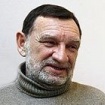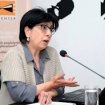Cooperation between the EU and EaP States 10 Years Later: What Lies Ahead?
The online conference was held on Public Dialogues website (www.publicdialogues.info). The conference was organized within the framework of "Public Dialogues for Communication between Armenian and Azerbaijani Specialists" project, implemented by Region Research Center. This project is supported by the Black Sea Trust for Regional Cooperation of German Marshall Fund. The Institute of Peace and Democracy (the Netherlands) is a partner to the project. The Public Dialogues website was created in 2012 by Region Research Center and the Institute of Peace and Democracy.
Participants
Boris Navasardyan (Armenia) – President of Yerevan Press Club,
Arif Mammadov (Azerbaijan) – Co-Chair of the Democracy for Azerbaijan Movement (AND), former Ambassador of Azerbaijan to the EU (2000-2006) and CoE (2006-2012),
Ivlian Haindrava (Georgia) – political scientist,
Hennadiy Maksak (Ukraine) – coordinator of the Ukrainian national platform of the Eastern Partnership Civil Society Forum, head of the Foreign Policy Council Ukrainian Prism.
The conference was moderated by Laura Baghdasaryan (Armenia), Director of Region Research Center.
What issues and aspects were discussed?
- The main results and lessons learnt, expectations and disappointments from the 10-year EaP program for participating countries and the EU.
- Conflicts and European integration, security and European integration.
- European integration in the public perception of participating countries, public associations/the discourse of cooperation between the EU and Armenia, Georgia, Ukraine and Azerbaijan.
- The degree of functionality of the European case within domestic policy in the relations between the power and political opposition, the power and civil society in the countries of the Eastern Partnership.
- Internal resources for the value-based and political integration of Armenia, Georgia, Ukraine, and even Azerbaijan.
- The geopolitical component of the Eastern Partnership program.
- Processes and problems in the EU, affecting the course and prospects of the EaP program and the European integration of the EaP member countries.
- The prospects of the Eastern Partnership program.
The online conference was held in Russian. Here we present some excerpts in English. Read the full text of the online conference in Russian HERE.
On the Achievements and Disappointments of the EaP Countries
Hennadyi Maksak –From among the main achievements Ukraine has had from the past 10 years of the EaP policy, one can confidently mention the start of the full implementation of the Association Agreement between Ukraine and the EU, including the complete and comprehensive free trade zone, as well as the introduction of a visa-free regime with the EU. These achievements can also be called justified expectations of Ukraine.
As for disappointments, the weak articulation by European institutions of membership prospects of partner countries that have such aspirations and are particularly interested in moving closer to the EU, certainly, rank first. The second major disappointment to be mentioned is the weak security component in the framework of the EaP policy, which has been and is very acutely felt against the backdrop of the Kremlin's aggression in Ukraine.
Boris Navasardyan - ... This period filled with crisis phenomena made it possible to assess the ability of the European Union to spread its integration energy to the East. This means
Pages
- 1
- 2
- 3
- 4
- 5
- 6
- 7
- следующая ›
- последняя »







 +37410 563363
+37410 563363
 ул. Бузанда 1/3, 8-й этаж, Ереван, Армения
ул. Бузанда 1/3, 8-й этаж, Ереван, Армения